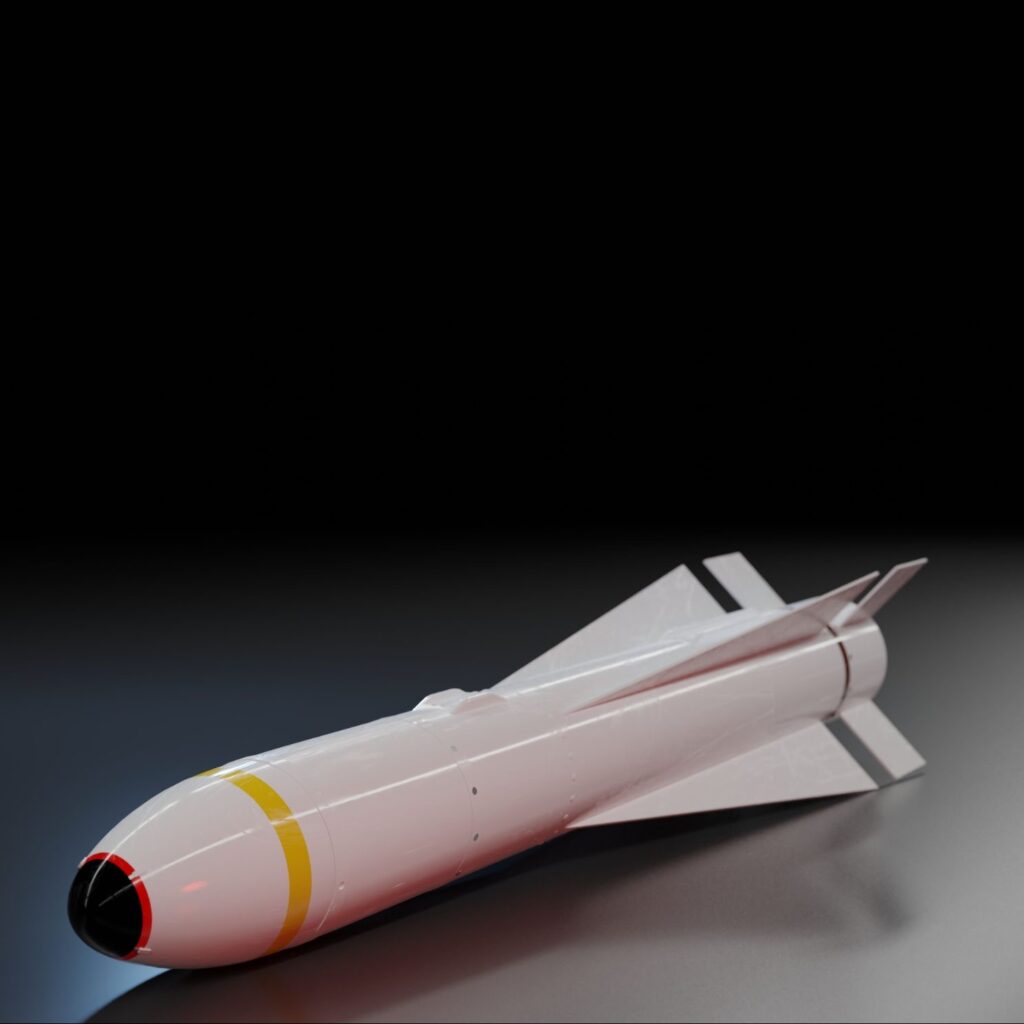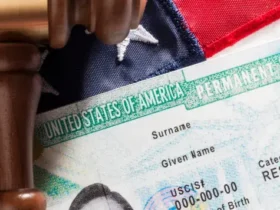What if blood had to be spilled on the White House floor for the United States to launch a nuclear attack? This theoretical idea was developed by Roger Fisher, a Harvard Law professor and the director of the Harvard Negotiation Project. His idea presents a solution to combat the unchecked and immediate decision-making nature of activating nuclear launches.
Fisher writes for the Bulletin of Atomic Scientists, where he challenges the U.S. President’s expedient access to the briefcase that contains the nuclear launch codes. In the United States and other countries, the power to start a nuclear war lies in the hands of the prime leader.
In the United States, the Commander and Chief of the army, the president, has sole authority to launch nuclear weapons. This absolute power had been delegated to the military during the Cold War. In 1945, former U.S. President Harry S. Truman took office and argued that nuclear weapons were a strategic political tool, changing nuclear launch power to be under the president’s control.
Today, a “nuclear football” also known as the nuclear briefcase containing the nuclear launch code is near the president at all times. “Mutually assured destruction – ‘MAD’” is all the president has to say and a nuclear launch can be achieved in minutes where both enemy and defender are obliterated. Fisher suggests a hypothetical: what if, “instead of a briefcase containing the nuclear launch codes, the means to launch a bomb should instead be carried in a capsule embedded near the heart of a volunteer”? The President would have to carry a blade and kill the volunteer on-site in order to receive the launch codes.
Although gruesome and strictly hypothetical, such a suggestion highlights the implications of nuclear war up close. Having to take the life of one person would draw attention to the thousands of lives potentially at stake with this responsibility. Fisher proposed this at the Pentagon and stated, “Before killing thousands, the leader must first look at someone and realize what death is — what an innocent death is. Blood on the White House carpet.”
The danger behind a country’s nuclear arsenal is that its immense power also has immense potential for error. The immediate nature and sole authority associated with the launching of nuclear weapons could contribute to a grave miscalculation.
However, nuclear bombs are not conducive to “learning from mistakes.” Many scholars theorize that an impending nuclear war may take place due to an accidental launch.
There have been countless near-misses that are known to the public, and many more that are concealed. According to Zaria Gorvett, an award-winning Senior Journalist at BBC Future, there have been at least “22 alarmingly narrow misses”. Moreover, the Future of Life Institute states that “the most devastating military threat arguably comes from a nuclear war started not intentionally but by accident or miscalculation.”
Today, there are thousands of nuclear weapons on high alert with the readiness to launch at any moment. Unbeknownst to many, nuclear war has almost started because of mere misunderstandings or mistakes — from misfired nuclear tests to the moon rising, computer simulation malfunctions, rockets, and training exercises, the near-misses have been too many to overlook.
Furthermore, William Perry, who served as the U.S. Secretary of Defense under Bill Clinton and Undersecretary of Defense for Jimmy Carter, described a narrow miss event in the 1980s that could have led to an accidental nuclear disaster.
Military surveillance computers alerted the United States that 200 missiles were making a descent from the Soviet Union. Perry comments that “they actually had called the White House before they called me – they called the president. The call went through to his national security advisor”. The security advisor had waited before waking up President Carter to make a decision on whether or not to retaliate. Within minutes, he received another call informing him that there was an error with the computer systems and it had been a false alarm. Had he not waited and woken President Carter up immediately, the outcome could have been very different.
“Had the president got the call himself, he would have had about five minutes to decide whether to launch or not. This is the middle of the night, no chance to consult anybody,” said Perry. Moreover, he added that mistaken launches are an “alarmingly realistic possibility,” as this incident was too close of a call.
In 1980, the Soviet Union launched four submarine-based nuclear missiles as part of a training exercise. The U.S. early warning system alerted military officials that the launch seemed to be aimed at the United States. The president had to decide whether to launch a counterattack. Fortunately, the warning sensor was incorrect, and the counterattack was halted.
This shows how alarming nuclear tests can be when accompanied by errors from missile detection systems. A similar situation occurred in 2010 when the U.S. Air Force “temporarily lost the ability to communicate with 50 nuclear missiles.” Without any communication, there was no possible avenue to stop an automatic launch or to detect it. In this instance, the United States could have started an accidental nuclear war. This reveals that “our present safeguards are not necessarily more robust than those from 50 years ago.”
Nuclear tests and military training exercises have not only pushed countries to the brink of starting a nuclear war, but have also prompted peculiar miscalculated situations. For instance, when computers at North American Aerospace Defense Command (NORAD) showed a massive Soviet attack on the United States, within seconds, “U.S intercontinental ballistic missile (ICBM) crews were put on the highest alert [and]nuclear bombs prepared for takeoff.” However after a couple of minutes, there was no data to confirm the attack and the ICBM crew withdrew the actions taken. They later found out that a technician had accidentally played a training tape broadcasting a realistic nuclear attack scenario.
Marshall Shulman, a senior U.S. State Department advisor, comments that “false alerts of this kind are not a rare occurrence. There is complacency about handling them that disturbs me.” Another near-miss incident happened when a radar misinterpreted a moonrise over Norway as a Soviet missile launch heading toward the United States. NORAD responded immediately with a high alert, until they realized something was off.
Other disturbing mistakes include an incident of a bear triggering a nuclear alarm in 1962. Meia Chita-Tegmark, Future of Life Institute member, commented that she finds this very cynical, “We humans are so hubristic when comparing ourselves to the rest of the animal kingdom, yet we’ve inadvertently created a system through which a single bear could endanger our civilization.”
Nuclear tests have become a strategic scare tactic in politics. Kim Jong-Un is the current Supreme Leader of North Korea. His use of nuclear missile tests is a notorious example of displaying military aggression to assert military dominance. The theory that nuclear war will likely happen accidentally also follows the ideology that one day, these acts of exhibitionism will be taken seriously. A nuclear test intended to threaten another country may one day be misinterpreted as an invitation to engage in a nuclear war.
Moreover, early warning systems from the Cold War are still used today. The systems do not wait for nuclear missiles to strike but rather detect them before they reach their target. The only true confirmation that missile threats are real is once they have already landed, which would leave the target country without the ability to retaliate. Perry and Tom Collina co-authored, The Button: The New Nuclear Arms Race and Presidential Power from Truman to Trump. According to Tom Collina, “Experts agree that by far the biggest threat comes from the very launch systems that are supposed to be protecting us,” because any false reading has the power to accidentally start a nuclear war.
There are some steps toward combating the possibility of accidental nuclear war. For instance, in China, they have a “no first use policy.”
Tom Collina, the director of policy at the nuclear non-proliferation charity Ploughshares Fund, states that China has “announced that they will not use nuclear weapons first in a crisis, and there’s some credibility in that policy because China separates its warheads [which contain the nuclear material]from its missiles [the delivery system].” China’s “no first use policy” is a favorable solution, when considering the instantaneous capacity for destruction when launching nuclear weapons. On the other hand, neither the United States nor Russia has such a policy, “they reserve the right to launch their nuclear weapons, even in response to conventional warfare methods.”
Moreover, today, the likelihood of false alarms remains high because of the increasingly sophisticated technology used in cyber-attacks. This should prompt countries to re-evaluate the “safety” they perceive from their nuclear arsenals.
Ultimately, nuclear weapons in a political setting are argued to be a deterrence for war. However, with the high risk of accidental nuclear war, it is difficult to maintain a viable argument for their necessity when it comes to global protection. Unless there is a zero chance of errors and accidents, how can we ever be truly protected when the stakes are so high?
Should the power to launch nuclear weapons be in a single person’s hands? There have been many leaders that take strong medications, drink heavily, have irrational personalities, and are diagnosed as clinically depressed through the ages. They are, after all, human.
Can world leaders ever be solely trusted to make a decision to launch nuclear weapons? The currently recorded incidents of narrow misses for nuclear war have taught us that both technological and human error remains a factor.
However, the essential problem lies in how vulnerable the human race and all living beings are left, in the hands of a select few leaders who can easily activate such catastrophe with a press of a button.







